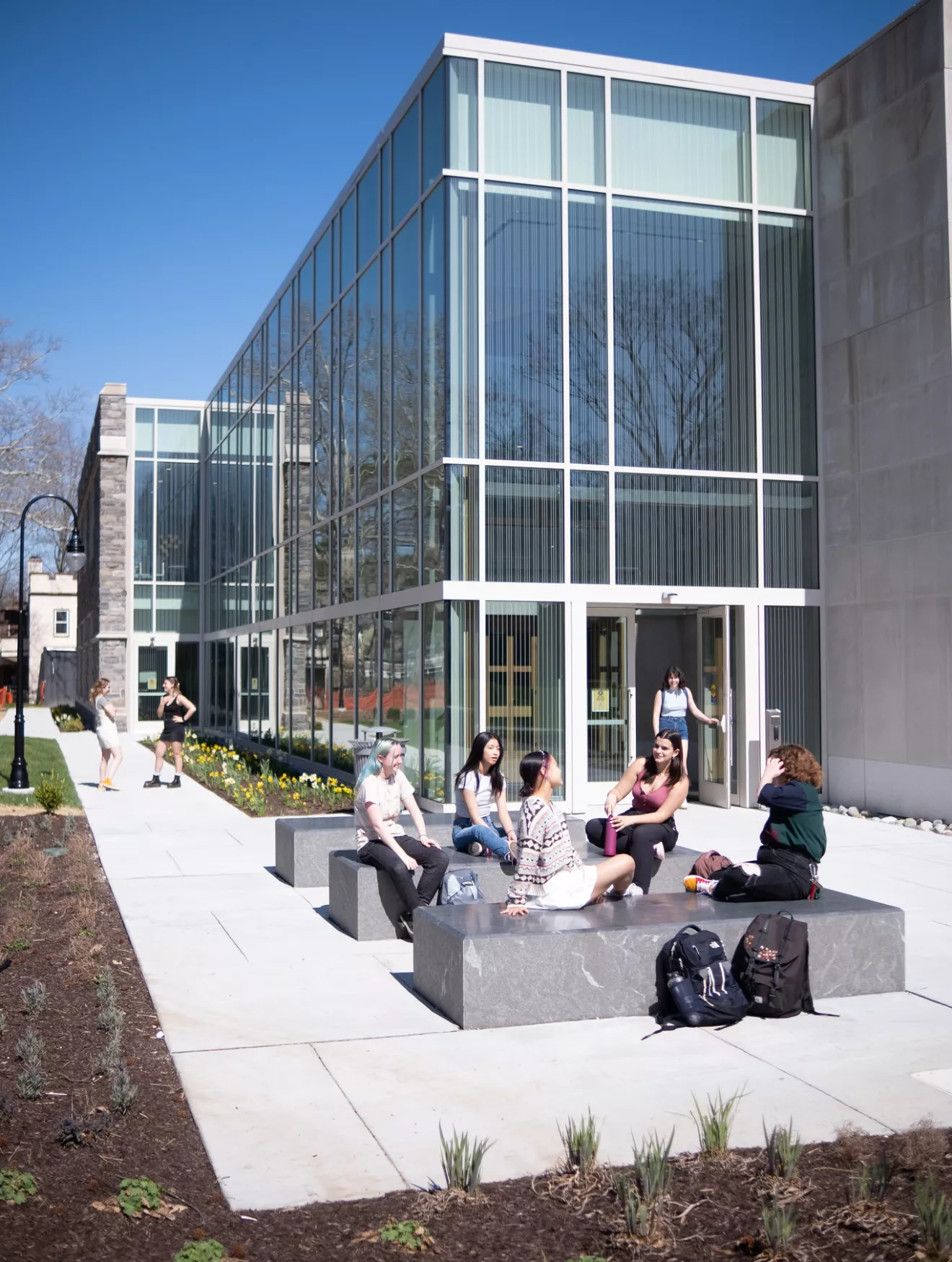
With the opening of The Well in 2022, Bryn Mawr embraced the most holistic vision of student wellness in its history.
The building brought together The Health and Wellness Center, Career & Civic Engagement, and the Impact Center for Community, Equity, and Understanding to advance a concept of wellness that included helping students care for both themselves and the communities that are important to them.
Wellness at Bryn Mawr has continued to evolve, and a recent $1.3 million grant from the The Pew Charitable Trusts is going to make even greater innovation and service integration possible, says Dean of the Undergraduate Division Karlene Burell-McRae.
“We’ve come a long way in terms of breaking down silos in our support of students, but there’s still more we can do,” says Burrell-McRae.
Among the key components of the grant is staff training for curricular development and student support based on the Designing Your Life principles.
Created by researchers from U.C. Berkley and Stanford, Designing Your Life concepts have been applied to nearly every aspect of “the problems of life, education, and vocation” and have been adopted by academic and career educators at more than 350 colleges and universities.
“Bryn Mawr has amazing people with incredible talents and gifts, and we need to be intentional and integrative on behalf of students so that they can thrive and best prepare themselves for future success,” Dean Karlene Burell-McRae.
The Career and Civic Engagement Center has already done a pilot program with Designing Your Life concepts, and the grant calls for the ideas to be introduced as part of Thrive programming, the Sophomore Plan, in a stand-alone course, and throughout the Undergraduate Student Division.
Siawaa Antwi ’24 is among the students to participate in the initial workshop.
“More than anything, it helped me realize you can only be what you believe—so believe great things," says Antwi. “Learning how to reframe our dysfunctional beliefs really changes the game because it unlocks all the doors we may have closed for ourselves. You don’t have to have just plan A or B; you can have a bunch because life isn’t linear, and as long as you stay open, try your best, and keep moving forward, you’ll be fine.”
Jennifer Beale, assistant director in the Career & Civic Engagement Center, recently completed training to become a certified Design Your Life coach. She, Associate Dean Katie Krimmel, and Director of Career and Professional Development Dayna Levy participated in the Design Your Life Studio Training. Through the grant, the college hopes to send as many as 12 other staff members from throughout the Undergraduate Student Division to the Design Your Life Studio training.
“All of us coming together in the Well was a first step of the integration of student support,” says Krimmel. “Adopting the common set of concepts and language of Designing Your Life has the potential to take our work to yet another level.”
For Associate Dean of Equity, Inclusion, and Community Life A.T. Ortíz, a key component of the grant proposal is the fact that it frames wellness as not just an individual concern but also as a community one.
Since 2022, Ortíz has been bringing campus community members together as one of the developers and co-facilitators of the Dialogue Project, a structured seven-week opportunity to build skills in communication, empathy, and creating community.
“The skills we need to have meaningful dialogue are not necessarily natural or innate,” says Ortíz. “They really need to be learned, and they need to be practiced.”
Through the Pew grant, the College plans to expand the number of participants in the Dialogue Project, and launch a Dialogue Project 201, for earlier participants to build upon their previous experience, further develop skills, and consciously contribute to the growth of community at Bryn Mawr.
“As people are acquiring and practicing these skills, we’re also building relationships,” says Ortíz. “To me, that’s what all of this is about, moving from being a campus to experiencing ourselves as a fuller community where we are all actively trying to understand each other and contribute to the wellness of one another.”
Other highlights of grant-funded programming and initiatives include:
- A new “National Treasure” curricular component that engages first-year students with Philadelphia history and culture.
- A financial wellness program that educates students on money management, budgeting, and credit and helps them reflect on their relationship to money.
- Workshops and curricular modules on restorative practices.
- Expanded campus and residential life programming for the Intercultural Living and Learning Center.
“Bryn Mawr has amazing people with incredible talents and gifts, and we need to be intentional and integrative on behalf of students so that they can thrive and best prepare themselves for future success,” says Burrell-McRae.